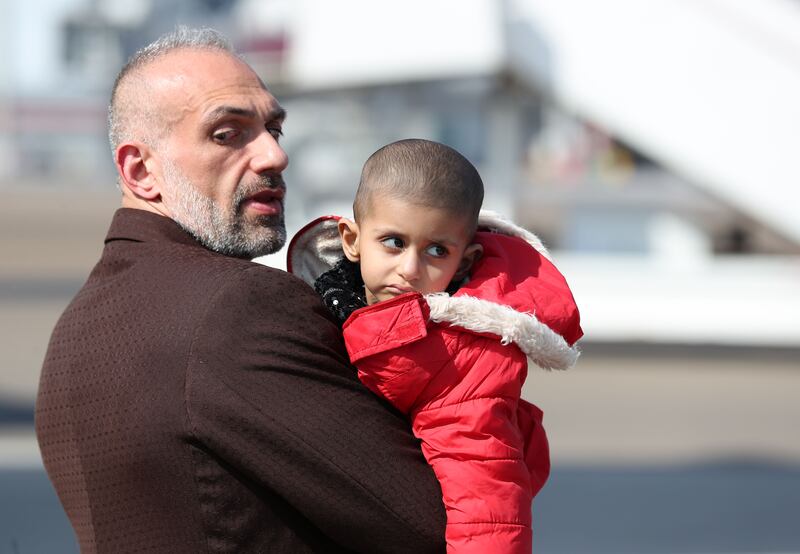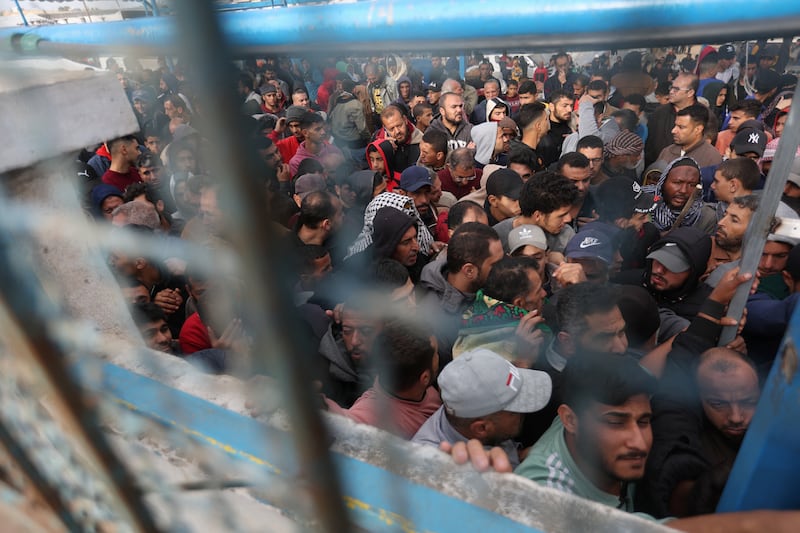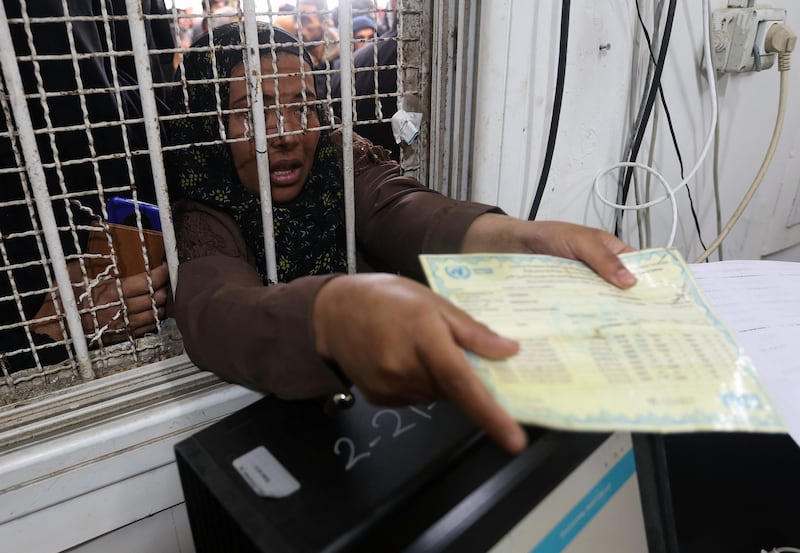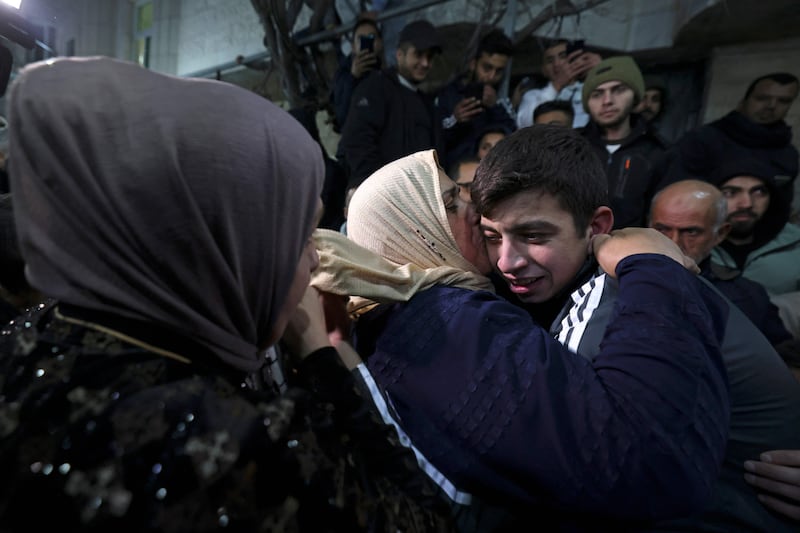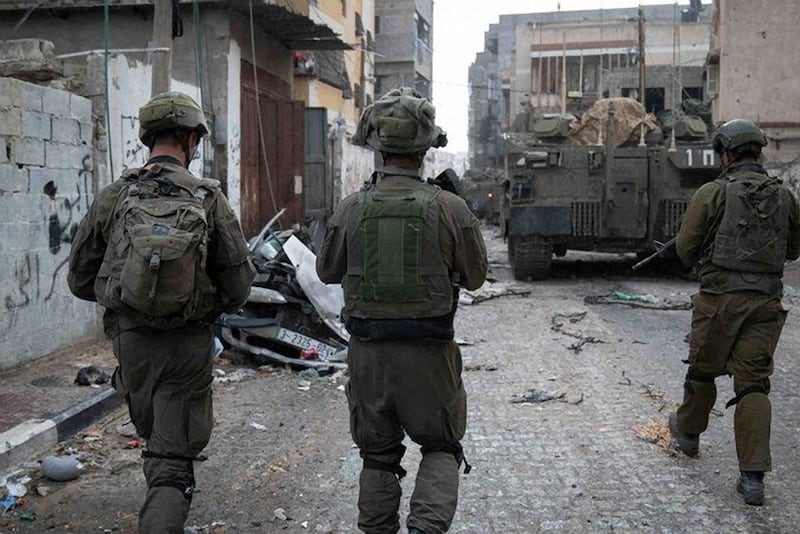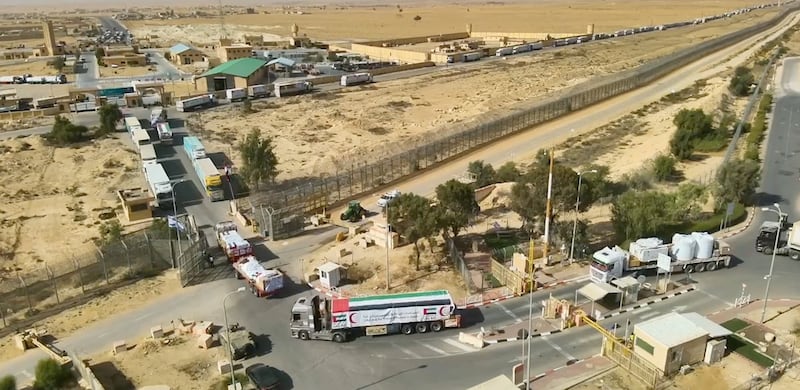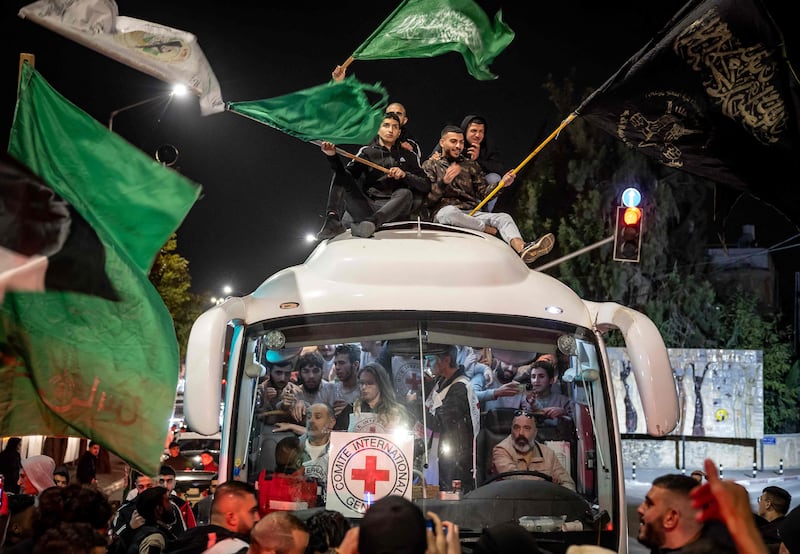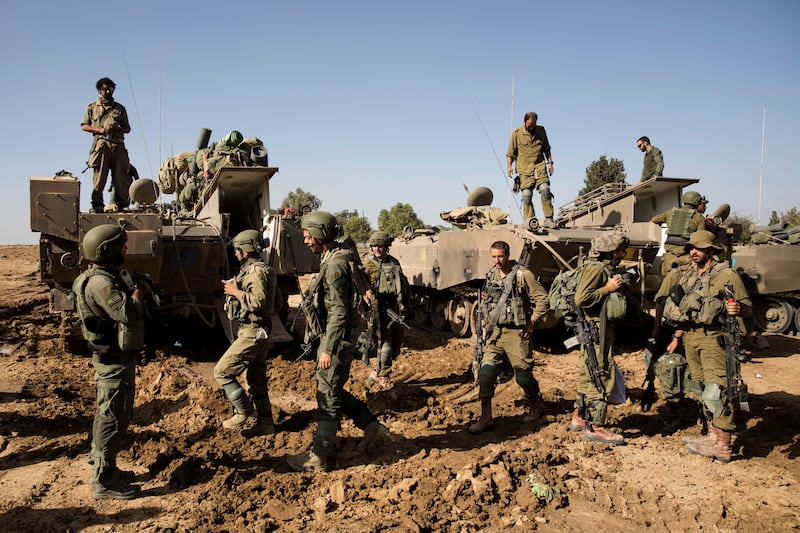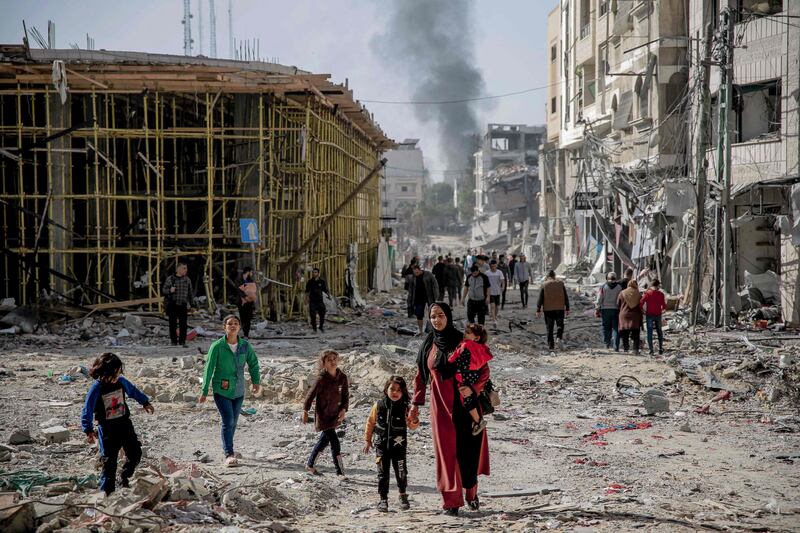Live updates: Follow the latest on Israel-Gaza
Israel is on a “path to permanent war”, experts told The National as fighting in Gaza resumed on Friday after a week-long pause.
The temporary truce expired on Friday morning, after Israeli Prime Minister Benjamin Netanyahu said Palestinian militant group Hamas had not agreed to release further hostages and fired rockets into Israel.
Hamas said an offer to release more hostages was rejected by Israel.
Israel has vowed to “crush” Hamas for its attack on October 7. But some fear that this objective cannot be achieved militarily, and that this would prolong the war indefinitely.
“We’re on the path of a permanent war, with a zero-sum ending to this,” said Daniel Levy, a former negotiator and founder of US/Middle East Project.
The consequences of pushing forward in the long term are stark, he added.
“Either Palestinians are displaced, or Israel is forced into major concessions, or Israelis begin to leave because it just becomes so unbearable,” Mr Levy told The National.
After the latest war began on October 7, Israel has also engaged in skirmishes with Iran-backed militia Hezbollah in Lebanon on its northern border – which could flare up at any time.
Settler violence against Palestinians in the occupied West Bank and tensions in Jerusalem could further escalate.
Prime Minister Netanyahu has been embattled over the security failures of October 7. He and his government were operating with the awareness that they’re “politically finished once the war is over” said Mr Levy.
“They see their choices mostly as how do they keep militarily pushing on.”

Since the war’s onset, doubts have been raised about Israel’s ability to eradicate Hamas militarily.
Recent hostage negotiations have further cemented these doubts, as Hamas’s military wing in Gaza appeared to be in control of who was released, and leader Yahya Sinwar was reported to have spoken to the hostages.
The negotiations presented themselves as a “success” for Hamas, and a failure for Israel’s military campaign, Mr Levy said.
“It shows that Israel couldn’t release them militarily, it’s a proof of concept that you can negotiate your way out of this, and that you can negotiate with Hamas.”
Hamas has suffered operational losses in Gaza owing to Israel’s destruction of tunnels and bases in the north. Yet images emerging from the hostage release showed that its military wing “appeared intact”, said security expert Ghanem Nuseibeh, founder of Cornerstone Global Associates.
Rather, the diplomatic gains Hamas made through hostage negotiations were unprecedented.
“They’re now negotiating with international parties. They couldn’t have dreamt of this a few years ago,” said Mr Nuseibeh.
There is no “silver bullet” to ending the conflict, in the form of economic normalisation, or calls for a two-state solution, said Mr Levy.
Rather, conditions on Israel from the international community are needed in order to move to the end of the military campaign.
The US in particular would need to “start placing conditionality, put costs to Israeli naysaying, put some serious choices, serious parameters, timelines to things where bad things happen when good things don’t,” he added.
A de-escalation would involve building “genuine pathways” to addressing the Palestinian issue.
“Occupation, dispossession, statelessness, denial of rights, all the things that apply to the Palestinians,” Mr Levy said.
The latest from the Israel-Gaza war – in pictures
Eran Lerman, a former Israeli military intelligence officer, said Israel needs a plan for the “day after” it defeats Hamas.
“Their mission must also include de-Hamasification,” Dr Lerman, told an event organised by the Henry Jackson Society foreign policy think tank this week
He explained that this would be similar to what happened during the process of de-Nazification in Germany after the Second World War, which he said “was a project that succeeded”.
Yet Hamas may continue to exist after the war.
“There will still be a Hamas,” said Mr Levy. Some have suggested that it would simply regroup and form under a different name. “The best that Netanyahu can hope for is a bit of rebranding,” Mr Nuseibeh said.
The group had been “strengthened tremendously” by the October 7 attack and were unlikely to concede to a solution that didn’t involve them.
“By carrying out the October 7 attacks they took a massive risk, they will fight to ensure that the last say is theirs,” Mr Nuseibeh said.
“I cannot see a political solution without them getting involved,” he said.


